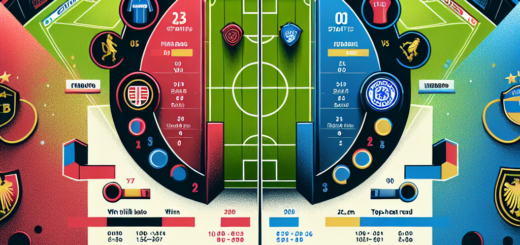футбол
The Beautiful Game: An In-Depth Exploration of Football

Football, known as «футбол» in Russian, is more than just a sport; it is a global phenomenon that unites people across continents, cultures, and languages. With its simple rules and minimal equipment requirements, football has become the world’s most popular sport, played and watched by billions. This article delves into the history, cultural impact, and modern developments of football, providing a comprehensive understanding of why it is often referred to as «the beautiful game.»
The Origins of Football
The roots of football can be traced back to ancient civilizations, where various forms of ball games were played. However, the modern version of football as we know it today began to take shape in the 19th century in England.
Early Beginnings
Historical records suggest that ball games were played in China, Greece, and Rome, but it was in England where the game began to evolve into its current form. The first known rules of football were established at Cambridge University in 1848, known as the «Cambridge Rules.»
The Formation of The Football Association
In 1863, the Football Association (FA) was formed in England, standardizing the rules and separating football from rugby. This was a pivotal moment in the sport’s history, leading to the widespread adoption of the game across the globe.
The Global Spread of Football
Football’s simplicity and accessibility have contributed to its rapid spread worldwide. Today, it is played in almost every country, with professional leagues and international competitions drawing massive audiences.
FIFA and the World Cup
The Fédération Internationale de Football Association (FIFA) was founded in 1904 to oversee international competitions. The FIFA World Cup, first held in 1930, has become the most prestigious tournament in the sport, with the 2018 edition watched by over 3.5 billion people.
Football in Europe
Europe is home to some of the most competitive and financially lucrative football leagues, such as the English Premier League, La Liga in Spain, and Serie A in Italy. These leagues attract top talent from around the world, making them a focal point for football fans.
The Cultural Impact of Football
Football’s influence extends beyond the pitch, impacting culture, politics, and society in profound ways. It serves as a platform for social change and a source of national pride.
Football as a Unifying Force
Football has the power to bring people together, transcending social and economic barriers. Major tournaments like the World Cup and the UEFA Champions League foster a sense of unity and shared experience among fans.
Case Study: Football and Social Change
In South Africa, football played a significant role in the fight against apartheid. The 2010 FIFA World Cup, hosted by South Africa, was a symbol of the country’s progress and unity. Similarly, football clubs and players often engage in charitable activities, using their platform to address social issues.
The Economics of Football
Football is not just a sport; it is a multi-billion-dollar industry. From broadcasting rights to sponsorship deals, the financial aspects of football are as dynamic as the game itself.
Revenue Streams
- Broadcasting Rights: Television and streaming services pay enormous sums for the rights to broadcast matches, with the English Premier League securing a deal worth over £5 billion for domestic rights alone.
- Sponsorships: Major brands invest heavily in football sponsorships, with companies like Nike and Adidas competing for kit deals with top clubs.
- Merchandising: Clubs generate significant revenue from merchandise sales, including jerseys, memorabilia, and other branded products.
Financial Challenges
Despite its profitability, football faces financial challenges, such as the disparity between wealthy clubs and smaller teams. Financial Fair Play regulations have been introduced to ensure a level playing field, but debates continue over their effectiveness.
The Future of Football
As football continues to evolve, it faces new challenges and opportunities. Technological advancements, changing fan demographics, and global events are shaping the future of the sport.
Technology in Football
Technology is transforming football, from the use of VAR (Video Assistant Referee) to data analytics for player performance. These innovations aim to enhance the accuracy of officiating and the strategic depth of the game.
Football and Globalization
Globalization has increased the reach of football, with clubs expanding their fan bases internationally. This has led to a more diverse audience and new markets for growth, particularly in Asia and North America.
Conclusion
Football’s enduring appeal lies in its simplicity, excitement, and ability to bring people together. From its humble beginnings to its status as a global powerhouse, football continues to captivate and inspire. As the sport navigates the challenges of the modern world, its core values of teamwork, passion, and fair play remain unchanged. Whether played on a dusty street or a grand stadium, football is truly the world’s game.


